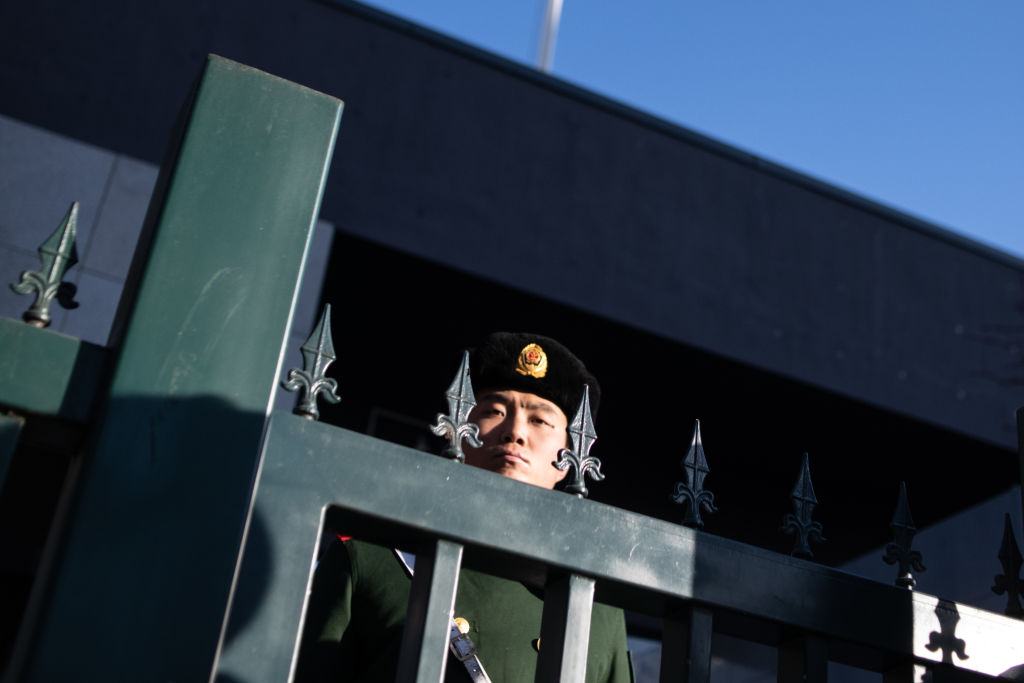
Hostage diplomacy is an apt name for the exquisite predicament in which Australia finds itself. An Australian citizen, Yang Hengjun, is held arbitrarily and then, in a shocking decision, sentenced to death. But with the diabolical twist that the sentence is suspended for two years dependent on good behaviour.
Whose good behaviour? Not Yang’s but ours—Australia’s. With Yang as a hostage, Australia is being blackmailed into submission and silence.
Beijing is masterful at planting self-doubt in the minds of rivals. If we speak out against Chinese bullying of neighbours in the South China Sea, will Yang be executed? If we name China as a perpetrator of cyberattacks, will Yang be executed?
If you are worried about what another party might do, they are in control. So, we need to make Beijing worry more about what we might do.
As a smaller nation that abides by rules and norms, the way to do that lies in collective action. Rather than try to walk this treacherous tightrope alone, Australia needs to work with liberal democracies to establish a coalition of nations that can respond to hostage diplomacy and impose a cost—from economic to reputational—on nations that abuse the rule of law this way.
And we are not starting from scratch. In 2021, the democratic world signed the Canada-led Declaration Against Arbitrary Detention in State-to-State Relations. Canada was driven by the experience of having two of its citizens, Michael Kovrig and Michael Spavor, detained arbitrarily because Ottawa agreed to consider an extradition request by the United States for Meng Wanzhou, chief financial officer to the telco giant, Huawei, whom US authorities accused of fraud.
Canada’s stoutness demonstrated that when a country stands up to bullying, it is standing up not just for itself but for everyone who believes in rules and norms.
The 2021 declaration was a good start, but it needs enforcement mechanisms to stop it being toothless. Australia should start with the Five Eyes group—our partnership with Britain, Canada, New Zealand and the United States—and the G7 nations, which adds France, Germany, Italy and Japan. It should also encourage participation from other countries that have citizens arbitrarily detained, such as Sweden with Hong Kong publisher Gui Minhai held since 2015. Countries that have experienced Moscow’s and Beijing’s bullying, like Lithuania and other European Union members, would also be powerful partners.
It must be clear to Beijing, and all totalitarian regimes such as Iran, that they will be held to account when they try to blackmail another country through hostage diplomacy. The only way to deter a malign actor is to convince it that its actions won’t work, and moreover there will be costs. A good recent example of such collective action was the use by Australia, Britain and the US of Magnitsky sanctions laws to target the Russian hacker behind the Medibank breach. Coordinated sanctions help tighten the net around a criminal’s assets.
No one should doubt this is a tough balancing act for Foreign Minister Penny Wong. She is rightly prioritising Yang’s welfare, and therefore the immediate step is to continue the most strenuous representations for Yang’s health and wellbeing.
That means medical care, books, contact with his family and a pathway to him being freed and returned to Australia. He should never have been jailed, and he certainly should not have been sentenced to death. His detention in reportedly harsh and even cruel conditions is a continuing abuse of a man in his late 50s with significant medical ailments who is likely not getting adequate care.
Wong responded on Monday with a clear denunciation of Yang’s sentence. She also trod carefully, saying this was a decision by the Chinese legal system. In truth, there’s no separation between the party-state and the courts in China, but Wong’s language may give the Chinese government space to step in and commute the death sentence.
Yet, this must not mean any kind of backward step by Australia on issues key to our values and long-term interests. If we let ourselves be tugged onto a slippery slope of submitting to Beijing’s coercive will, the coercion will continue. And unlike, say Iran, which has taken prisoners as bargaining chips in straight out government-to-government transactions, Beijing tends not to offer any kind of clear exchange but rather builds pressure for long-term submission to its core strategic objectives.
Hence, for Wong, short and long-term goals arise from the Yang case.
Long-term, it’s about having as many countries on our side as possible so that Beijing recognises that to execute an innocent citizen of another country is no longer just a bilateral issue with a smaller power, but a global issue. The risk-benefit calculation changes dramatically.
It’s time for Beijing to stop assuming it can worry Australia, and start worrying about what Australia might do. In this case, we can fight for Yang and our democratic sovereignty.

